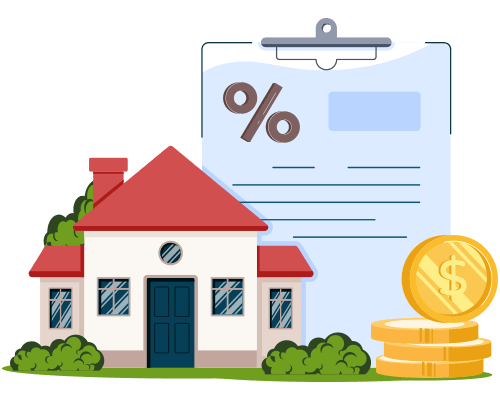Learn exactly what fees you’ll need to pay at closing, how much they typically cost, and proven strategies to reduce or eliminate them.
Verify Your VA Loan Eligibility
VA loan closing costs are the fees and expenses due at the time your VA home loan is finalized, separate from your loan amount. These cover everything from inspections to lender fees.
Common VA Loan Closing Costs Include:
VA Funding Fee (unless exempt)
Loan origination fee
Appraisal fee
Title insurance
Credit report fee
Recording fee
Discount points (optional, to buy down your interest rate)
Prepaid items (taxes, homeowners insurance, HOA dues if applicable)
Closing costs for VA loans typically range from 3% to 5% of the loan amount. Here’s a rough estimate based on common home prices:
| Home Price | Estimated Closing Costs |
|---|---|
| $250,000 | $7,500 – $12,500 |
| $350,000 | $10,500 – $17,500 |
| $450,000 | $13,500 – $22,500 |
The VA funding fee alone can be up to 3.3% if you're using the benefit for the second time without a down payment.
The VA Funding Fee is a one-time payment to help keep the VA loan program running for future veterans. It’s required unless you qualify for an exemption.
2025 VA Funding Fee Rates (with no down payment):
First-time use: 2.15%
Subsequent use: 3.3%
Exempt: 0% (for those with VA disability compensation, Purple Heart recipients, etc.)
You can pay this fee upfront or roll it into your loan amount.
Unlike conventional loans, some closing costs cannot be paid by the buyer on VA loans. These are called non-allowable fees. Typically Paid By:
Buyer: Funding fee, appraisal, insurance, title fees, prepaid items.
Seller or Lender: Non-allowable fees like attorney fees, escrow fees, and loan processing fees (if negotiated)
The VA limits how much the buyer can pay in lender fees to no more than 1% of the loan amount.
Want to save on closing costs? Here are the top strategies:
The VA allows sellers to pay up to 4% of the purchase price toward your closing costs. Ask your lender or agent to help negotiate this.
Not all VA lenders charge the same. Compare estimates and choose one with competitive terms.
Some states and counties offer grants or loans to help cover VA loan closing costs, especially for first-time or low-income buyers.
You can roll the VA funding fee into your loan if you want to preserve cash upfront.
| Loan Type | Typical Closing Costs | Down Payment |
|---|---|---|
| VA Loan | 3%–5% | 0% |
| FHA Loan | 3%–6% | 3.5% |
| Conventional Loan | 2%–5% | 3%–20% |
The VA loan is the only program offering zero down with relatively low closing costs and no monthly mortgage insurance.
Yes and No.
VA Funding Fee: Can be financed into the loan.
Other closing costs: Must be paid out of pocket or covered by seller concessions or lender credits.
Fees like appraisal, title insurance, the VA funding fee, and prepaid taxes and insurance.
Usually 3%–5% of the loan amount, depending on location, lender, and loan size.
Yes, up to 4% of the purchase price can go toward closing costs, including paying off debts and prepaid items.
Only if you’re not exempt. Veterans receiving VA disability compensation are exempt.
Only the VA funding fee can be rolled into the loan. Other costs must be paid upfront or covered by the seller/lender.
Fees the VA prohibits the buyer from paying, like attorney or escrow fees. These must be covered by the lender or seller.
Use our VA closing costs calculator to get a personalized estimate.
Ask about seller concessions, down payment assistance, or lender-paid credits to help reduce upfront costs.
Some, like mortgage interest and property taxes, may be deductible. Check with a tax advisor.
VA loans usually have lower costs upfront and no mortgage insurance, making them more affordable over time.
We’ve helped thousands of veterans and service members buy homes with zero down and minimal out-of-pocket costs. Our team will guide you through:
Getting pre-approved.
Understanding VA loan eligibility.
Reducing or eliminating your closing costs.
Locking in the best rates.